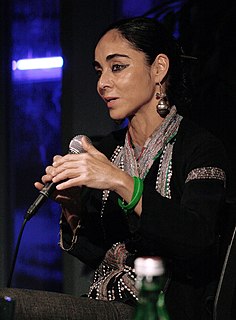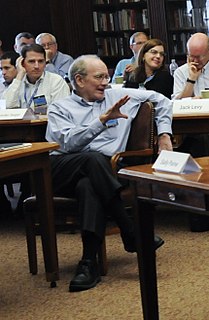A Quote by Jean-Jacques Rousseau
It is hard to prevent oneself from believing what one so keenly desires, and who can doubt that the interest we have in admitting or denying the reality of the Judgement to come determines the faith of most men in accordance with their hopes and fears.
Related Quotes
We're either awake or we're sleeping. During the time that we're awake, we work very hard at denying things, mainly because we have to function as people. We have to control and repress everything that we're fearful of, because it doesn't make sense to go crazy on the streets, but in reality we hide and we hide, repress and repress, our fears of the world of violence, of separation, of death, and sometimes hopes, and some things that are very joyful, reunions or all of those good things. It's only in dreams that we're really truthful with whatever hurts most; they're really very real.
Take faith, for example. For many people in our world, the opposite of faith is doubt. The goal, then, within this understanding, is to eliminate doubt. But faith and doubt aren't opposites. Doubt is often a sign that your faith has a pulse, that it's alive and well and exploring and searching. Faith and doubt aren't opposites, they are, it turns out, excellent dance partners.
Every true faith is infallible. It performs what the believing person hopes to find in it. But it does not offer the least support for the establishing of an objective truth. Here the ways of men divide. If you want to achieve peace of mind and happiness, have faith. If you want to be a disciple of truth, then search.
Faith always presented to the mind the idea of an abnormal intellectual condition, of the subversion or suspension of the critical faculties. It sometimes comprised more than this, but it always included this. It was the opposite of doubt and of the spirit of doubt. What irreverent men called credulity, reverent men called faith; and although one word was more respectful than the other, yet the two words were with most men strictly synonymous.
One does not learn anything except by believing something, and -- conversely -- if one doubts everything one learns nothing. On the other hand, believing everything uncritically is the road to disaster. The faculty of doubt is essential. But as I have argued, rational doubt always rests on faith and not vice versa. The relationship between the two cannot be reversed.
As soon as we ask what faith is and what sort of mistreatment of faith causes doubt, we are led to the first major misconception about doubt-the idea that doubt is always wrong because it is the opposite of faith and the same thing as unbelief. What this error leads to is a view of faith that is unrealistic and a view of doubt that is unfair.






































